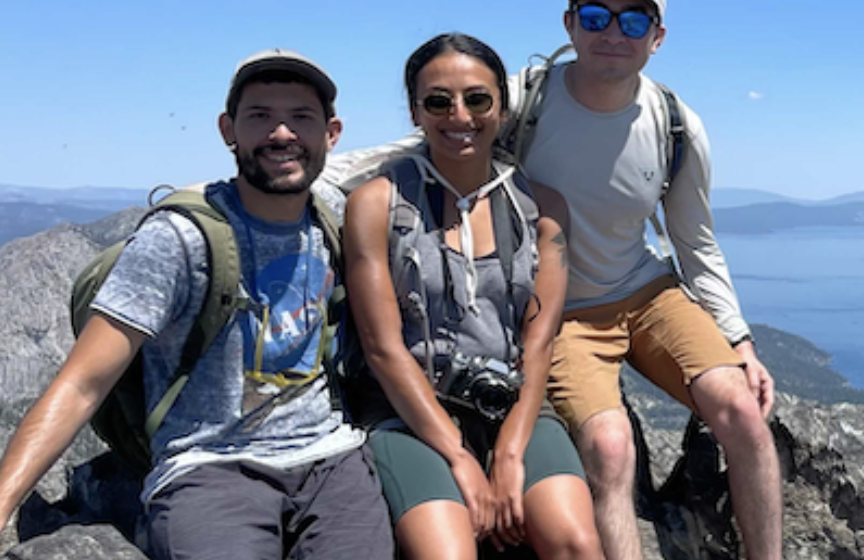

The Seven Habits of Highly Effective Founding Engineers
In a content series called Observe:Life, Arize is featuring perspectives from founding engineers and others on the culture and work experience at Arize. This post features Manisha Sharma, a Founding Engineer at Arize and a Forbes 30 Under 30 honoree. Want to join an open and collaborative engineering team that is building the future of responsible AI and better machine learning models in production? See open positions and apply today!
While there are a wealth of articles and resources geared toward helping people prepare for software engineering jobs, there are relatively few guides on how to become a founding engineer – particularly ones that are not written by either tech bros or venture capitalists. As I approach my two year anniversary of joining Arize as a founding engineer, I want to add my own voice into the mix. Hopefully sharing some thoughts on my own journey as a founding engineer can help others considering a similar transition.
What Is a Founding Engineer?
Founding engineers are core to both the technical and cultural parts of an organization in its formative stages. Besides being strong technical individual contributors, founding engineers necessarily wear multiple hats such as customer support, product management, project management, recruiting, and even content marketing. As members of the founding team, they are also early linchpins of the engineering organization – laying the technical foundations of what is to come. What they lack in time they make up for in the ability to see their work make an impact each and every day.


My Journey To Becoming a Founding Engineer
I didn’t initially set out to become a founding engineer. In fact, I graduated from college with a cognitive science degree rather than a computer science degree so it was hardly a given on day one that I would take on such a role. However, fast forward three years and I can’t see myself doing anything else.
I joined Arize as a founding engineer after spending over three years as a frontend engineer and senior frontend engineer at Pandora and Slack, respectively. My contributions in these roles included data visualization applications in the advertising space and improvements to products with millions of users.
Although I learned a lot from the engineering culture and practices at both Pandora and Slack, I found myself wanting to take ownership of something bigger where I could see the direct impact of my work. When the opportunity to work at Arize as such an early engineering hire came up, I was enticed by a future of creating things completely from scratch, learning about many different engineering components of creating a platform from end to end, and all the non-engineering work that goes into shipping quality products quickly. In the discussions that followed, it became clear to me that working at a startup aligned closely with my engineering goals – not only as an individual contributor, but also as an effective technical leader.
While I didn’t have a decade of technical experience at the outset, it didn’t matter. I accepted the founding engineer role with confidence for a simple reason: I knew from my own personal experience navigating college as a first-generation graduate and being the first person in my family to work as an engineer and to work in technology that I could thrive in high-paced, ambiguous situations with little precedent or structure.
The Essential Elements of Effective Founding Engineers
Through the crucible of late nights, seemingly countless sprints, gallons of coffee, and many huddles emerged a set of values that I aspire to live by and hold myself accountable to as a founding engineer. These values inform the checklist for potential founding engineers below.
1. You Have the Humility To Admit What You Don’t Know
- Why This Matters: There is no faking it until you make it as a founding engineer; a product either works or it doesn’t. Admitting when you do not know something and asking for help is a prerequisite for real success. It’s also refreshing to clients and others when you admit that you are a fallible human being and may not know the answer to their question but will find out and circle back with a better answer than if you winged it.
- My Experience: Upon joining Arize, I encountered a steep learning curve. The worlds of machine learning and MLOps, while familiar, were mostly new to me. Rather than be daunted by that fact, embracing a learning mindset gave me a unique empathy for new users of the product and people starting out in their machine learning career – ultimately informing product design. A good UX is accessible to all, and that starts at home.
2. You Can Summon Grace Amid Chaos
- Why This Matters: When it feels like you are constantly getting jerked around, the key is to not become a jerk. Joining a company as a founding engineer goes against a very real, human need for predictability and stability – you are always a work in progress operating in a culture of iteration, CI/CD, product development, and growth. Managing through the emotions and trauma of this is hard and requires practice but can make you a better engineer and leader.
- My Experience: At Arize, I learned early on that balance and intentionality with colleagues is a key part of the job. While I intrinsically like and trust my colleagues at Arize, passions run deep and tempers flare. By investing in these relationships – whether through sincere appreciation expressed on our #shoutouts Slack channel or more private heart-to-hearts – I am able to ensure that disagreements do not ever become personal.
3. You Love Taking Ownership
- Why This Matters: Given founding engineers join a company in its formative stages, they cannot afford to be precious about what is or isn’t in their job description. There is no waiting for direction; if there is a problem to be solved, most founding engineers do it without being asked.
- My Experience: In the early days of the company, I implemented a simple way to feature-flag upcoming features, created QA templates and organized dogfooding sessions to ensure we always set aside time for quality assurance as we shipped products quickly that later proved important in catching issues early. Other tasks that I took on in those early days include creating new hire onboarding guides and working with the engineering team to plan initiatives such as Platform Stability Week where we worked exclusively on improving our existing systems instead of creating new features.
4. You Thrive Under Ambiguity
- Why This Matters: Executing at an exceptional level in a fast paced and less structured environment is difficult. Unlike midsize or larger companies, early-stage startups do not have product design requirements or fleshed-out user flows and designs ready for a founding engineer. The ability to fill in the gaps under tight time constraints using your prior knowledge and intuition is key. This requires striking a delicate balance between trusting your assumptions and ideas versus seeking clarification.
- My Experience: After a few months as a founding engineer, I felt like I was constantly treading water. Lots of context-switching and dealing with things as they came up made prioritization and simply getting work done difficult. Creating my own structure was essential, as was trusting my own instincts and only seeking clarification from the rest of the founding team on the big questions.
5. You Know Your Strengths and Weaknesses
- Why This Matters: While it’s a given that a founding engineer should have a solid (if not exceptional) technical background, the most effective founding engineers are also multidisciplinary people. They can identify bottlenecks in an engineering team and put processes in place to increase velocity, recruit other engineers to join their pursuit, and set engineering team cultural values that are reflected in recruiting and day to day operations.
- My Experience: Despite being a less technical founder than several of my peers at Arize, I’m heartened by the fact that I don’t need to be the smartest person in the room at all times to add a great deal of value. Coming up with processes to help accelerate the velocity of the team or communicating technical decisions can be just as important as making those architectural decisions.
6. You Know How To Make Tradeoffs Wisely
- Why This Matters: In an environment where there is always more to do and deals to close, engineering work can sometimes feel highly compromised. Founding engineers often find themselves constantly making tradeoffs such as writing hacky code to get a short term win or negotiating for a tech debt cleanup week for the long term amidst new feature requests.
- My Experience: There is no perfect rule. One week, I might be helping with a customer issue for a few days and postponing feature development; another week, I might be heads-down readying a new product to be deployed into production, with a day or two mixed in to recruit and interview potential hires. Transparent, thoughtful prioritization is everything.
7. You Trust Your Fellow Founders – Because If They Suck, None of the Above Will Matter
- Why This Matters: When considering a founding engineer role, imagine you’re dating. The best relationships are ones where you share the same core values. A shared understanding and language helps cut through ambiguity, chaos, and misunderstanding.
- My Experience: I would’ve never accepted the role at Arize if it wasn’t with people I knew and trusted and admired – nor would I have made a bet if Arize were just random people that looked good on paper. The founding engineer role is too hard to take on without this foundation of respect.
Conclusion
While the founding engineer role is likely not for everyone, for the right person it is the ride of a lifetime! As the job market continues to heat up, I hope that more diverse founders enter the fray in the near term. If anyone wants advice or to connect, feel free to message me on the Arize Community.


